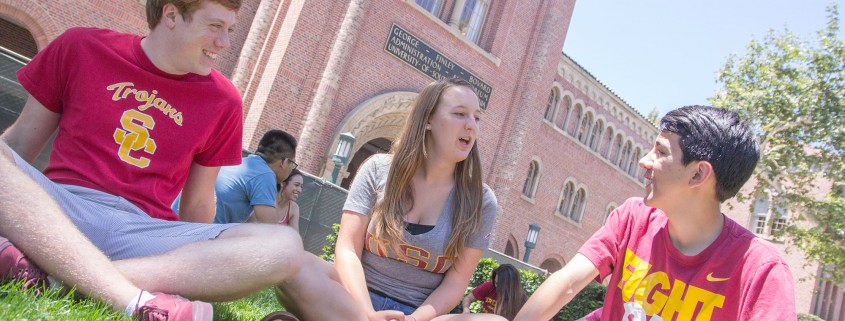Orientation sessions to be restructured
Due to USC hosting the Special Olympics, some freshman orientation sessions will take place off-campus for the first time.
There will be six on-campus sessions, including one for international students in the middle of August, and eight off-campus freshmen orientation sessions, including three sessions in China. The off-campus sessions for freshmen within the U.S. will be held in New York, Chicago, San Mateo, Sacramento and Dallas. The international freshman off-campus sessions abroad will be in Shanghai, Beijing and Hong Kong. Current students who returned home for the summer to these specific locations were selected to help out with the sessions.
The on-campus freshman orientations begin on June 11, with the last session being held on August 17. The off-campus freshman orientation sessions began May 30 in Chicago and New York and will finish in Dallas on July 18.
Additionally, the university will offer three on-campus orientation sessions for transfer students. There will be no off-campus sessions offered for transfer students.
Lisa Starr, director of Orientation Programs, discussed the main differences of the new orientation format. Some of the changes include moving some of the mandatory activities, originally done during Welcome Week, to the first day of the session instead.
“The ‘Talk About It’ sessions, that are about forming healthy relationships and the idea of consent in relationships, were mandatory for the first time last year for freshmen coming in, and they were held during Welcome Week,” she said. “But now we’re going to be able to have smaller sessions during orientation and break up into small discussion groups with their orientation advisors later and just have the chance to really talk about it more than they were able to last year.”
The structure for Welcome Week will be similar to ones held in past years, but the program will be adding more activities for students and will additionally be revamping its database and website.
Starr also emphasized that the idea of orientation was for students to get better acclimated initially, and to assist them in having a healthy approach to their first few months at school.
“We’ve restructured the student activities fairs and resources for students so that they understand that they need to manage their time and figure out what works best for them. We want them to have a healthy first year experience,” she said.
Amy Suto, an orientation coordinator, also believes that the new structure allows for incoming students to get to know their advisors better during O-Group discussion, rather than just providing them with all the information.
“We’ll be doing more team-building exercises with the groups,” she said. “We will also have the students sign up for individual appointments with their orientation advisors to better connect them with resources and help them get a great start at USC.”


For new int’l students, a
new award-winning worldwide book/ebook that aids anyone coming to the US is “What Foreigners Need To Know About
America From A To Z: How to Understand Crazy American Culture, People,
Government, Business, Language and More.” It is used in foreign Fulbright
student programs and endorsed worldwide by ambassadors, educators, and editors.
It also identifies “foreigners” who became successful in the US and how they contributed
to our society, including students.
A chapter on education explains how to be
accepted to an American university and cope with a confusing new culture,
friendship process and daunting classroom differences. Some stay after
graduation. It has chapters that explain how US businesses operate and how to
get a job (which differs from most countries), a must for those who want to
work for an American firm here or overseas.
It also has chapters that identify the most
common English grammar and speech problems foreigners have and tips for easily
overcoming them, the number one stumbling block they say they have to
succeeding here.
Most struggle in
their efforts and need guidance from schools’ international departments,
immigration protection, host families, concerned neighbors and fellow students,
and books like this to extend a cultural helping hand so we all have a win-win
situation. Good luck in your new school!